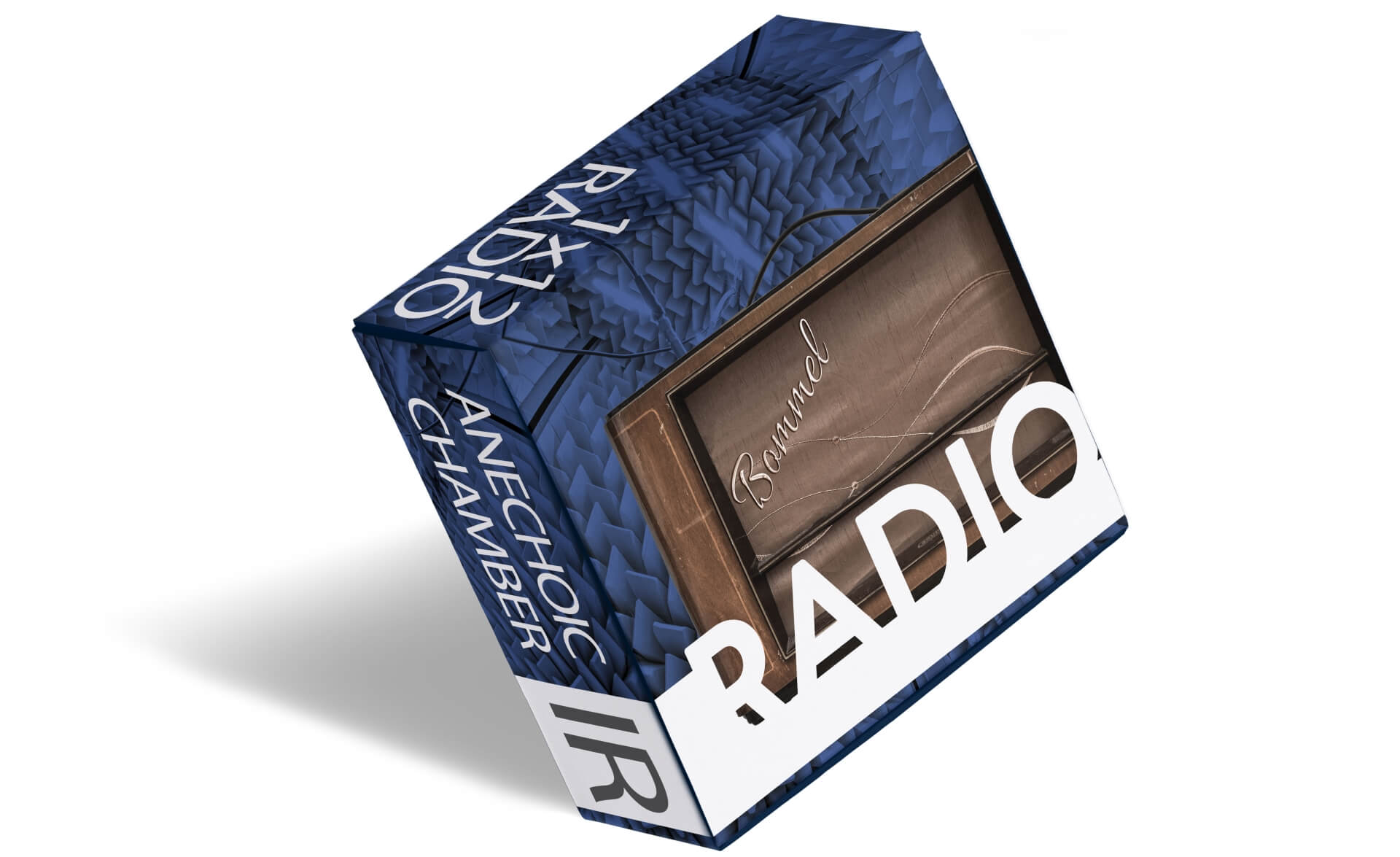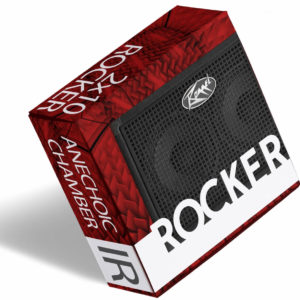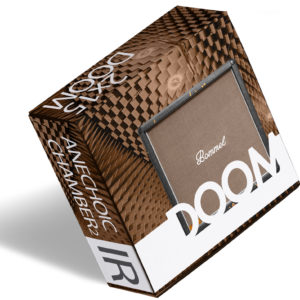The Story
The Cab
The Mics
Formats
Disclaimer
USP
The Story
These are the Impulse Responses i'm most proud of: The Anechoic Chamber IRs Have you ever seen somebody with his head directly at the speaker while playing guitar live or in bandpractise? Me neither! So, i naturally experimented with placing the mic further away, but i immediately ran into problems. It simply never represented the speaker like I wanted it, it was colored, roomy and sounded farther away then i experienced it with my own ears. I had to accept that hearing (naturally in stereo) always will differ from a mono mic. I tried mixing close and far mics, to get the best of both worlds but that caused phase problems and the room coloration was still in there. I tried shotgun mics, to get the room influence out there while being farther away from the mic, sadly they sounded bad. I tried stereo micing in a x/y pattern to have no phase problem but the signal sounded roomier then what I was experiencing. I tried so much and this is so far my best attempt. I made IRs in an anechoic chamber and a very special one at that. Having over six meters between the tips of the absorbers and having Absorbers that are 1,50m in length leads to a fantastic combination of big room size but the advantages that are mainly found in smaller chambers. This room is certified to offer freefield from 50Hz upwards. The greatly reduced reflexions made the far field IRs very special. They simply sound still close and the uncolored sound then is a great starting point for adding reverb or eq. Combfiltering and room modes are basically not existent and that leads to a very good representation of the cab itself without the room influence.
The Cab
I tried to recreate the Sound of my Felleretta© 1x12, Equipped with Celestion seventy80 speakers©. It sounds smooth with dense lowmids and bass. The seventy80© speakers are pretty underrated and sound very similar to the g12k 100© speakers that are used in some of the heaviest cabs out there. The openback design causes a different lowend without the typical "bump" at the resonance frequency of closedback cabs. This cab also has a bit more sparkle and is slighty different from the 7080.
The Mics
Mics used:
- 2k - Based on a Audio Technica© mb2k
- 7b - Based on a Shure© sm7b
- 52 - Based on a Oktava© 52-02
- 57 - Based on a Shure© sm57
- 160 - Based on a Beyerdynamic© m160
- 193 - Based on a Neumann© TLM193
- Colibri - Based on a BLUE© Hummingbird
- MM - Based on a Beyerdynamic© MM1
Formats
The Files are delivered in 44.1 kHz, 48kHz, 96kHz .wav and converted to .kipr to use with a Kemper© Profiling Amp
Disclaimer
*All product names and company names are trademarks of each respective holders. The Bommel GbR is not associated or affiliated therewith. These product names are used solely for purpose of identifying the specific products that have been used to create Kemper profiles or impulse responses.
USP
The anechoic chamber IRs come in two basic versions:
- Close miced (at the acoustic center of the speaker)
- Far miced
- -Blank- or "dark"= This is just the normal version.
- "Tilt" = Here a Tilt-EQ is applied to the IR tha makes the IR brighter without loossing the original tone of the speaker (only available for the close micing).
- "Linear" = The frequencies between the resonance frequency and the highest frequency that the speaker accurately plays are linearized with a 32band eq. This is a unique way to make all notes of your solo playing equally loud. So if the notes are not equally loud, it is either your playing or your amp settings, the cab will cause no problems.



